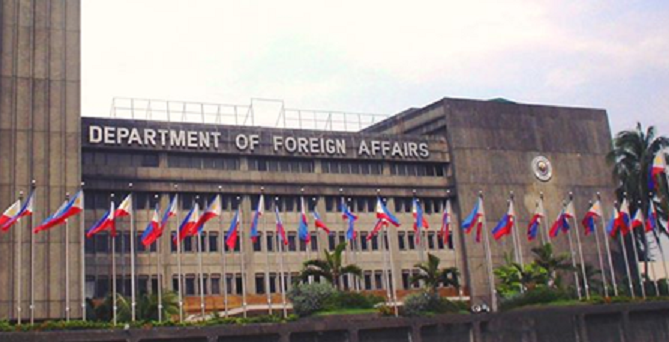
MANILA – The Philippines has protested China’s flight tests over a Manila-claimed reef in the South China Sea, highlighting continuing animosity between the two Asian neighbors.
Foreign Affairs spokesman Charles Jose said the First Secretary of the Chinese Embassy in Manila was summoned on Jan. 8 to the department to receive the protest which was contained in a diplomatic note.
It was only on Wednesday that the DFA announced the protest was filed last week.
“We formally protested on 8 January 2016 the recent test flights conducted by China to the Kagitingan Reef (Fiery Cross Reef) and its provocative actions restricting the freedom of navigation and overflight in the WPS (West Philippine Sea),” Jose said, quoting the DFA’s statement.
Such actions by China, he added, “have elevated tensions and anxiety in the region and are in violation of the spirit and letter of the ASEAN-China DOC or Declaration on the Conduct of Parties in the South China Sea.
The DOC is a nonbinding political accord signed in 2002 by China and ASEAN members Philippines, Malaysia, Vietnam, Brunei, Singapore, Thailand, Indonesia, Cambodia, Laos and Myanmar that would precede the proposed regional Code of Conduct.
It discourages aggressive actions and bars construction of new structures in the contested region that could spark armed conflicts.
However, many regard the 2002 accord as lacking in teeth and a dispute-settlement scheme to effectively deal with the territorial disputes, sparking calls for a more effective and legally-binding Code of Conduct.
Upon receipt of the note, Jose said China rejected Manila’s protest, insisting its sovereignty over the waters, home to one of the world’s major shipping lanes, is “indisputable.”
Vietnam, which is also claiming the Fiery Cross, also protested China’s actions.
The 10-member ASEAN bloc has aspired to hammer a regional code with China that would prevent conflicting territorial claims in the vast potentially-oil rich region from erupting into violent confrontations or worse, an economically-devastating major conflict.
Such a goal has acquired urgency due to China’s rapid and massive island-building on previously submerged reefs disputed by other claimants such as Vietnam and the Philippines. The reclamation has also triggered concerns from several states, such as the United States, Japan and Australia.